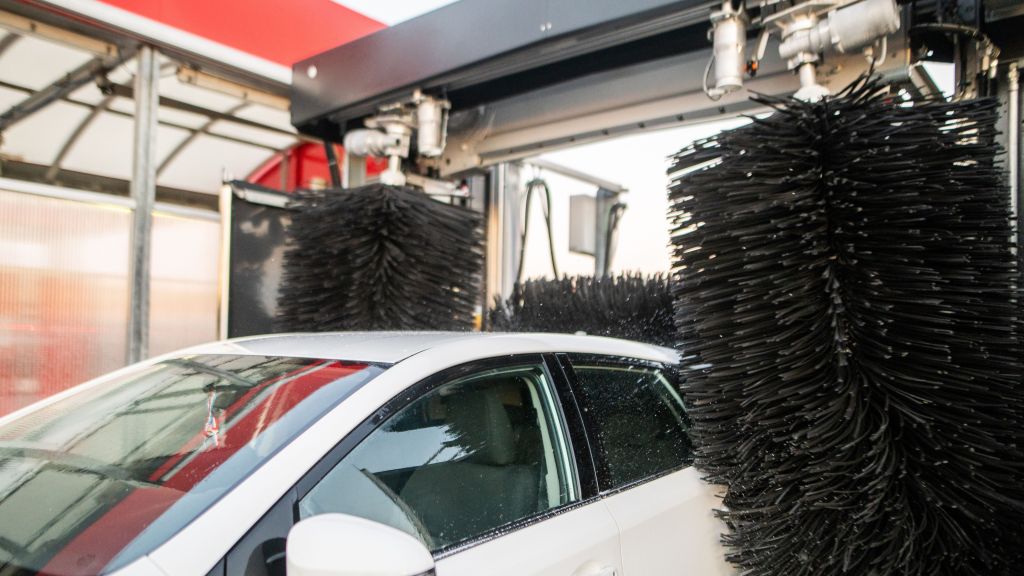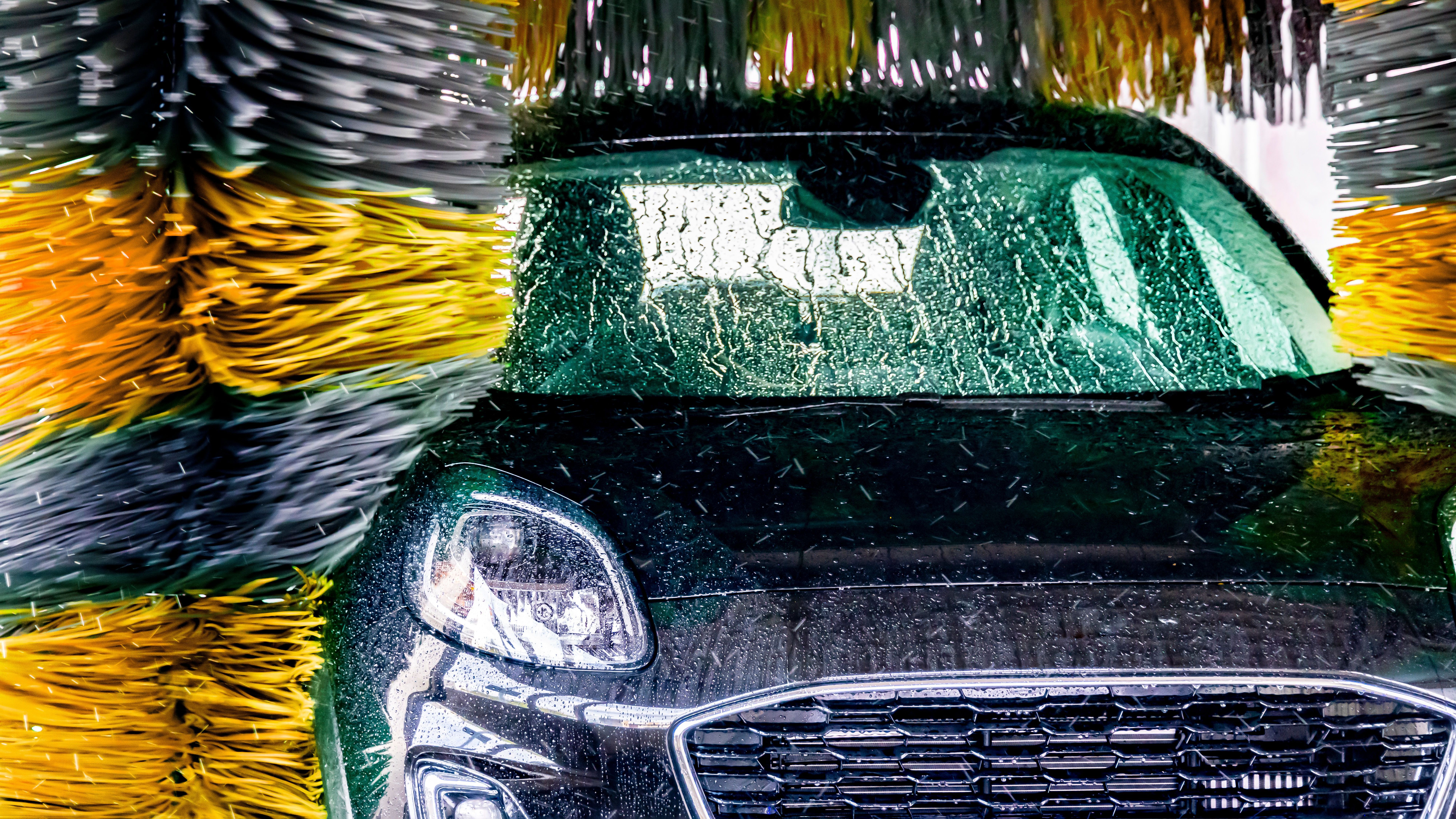If you want to invest in a relatively stable and profitable industry, investing in a car wash can be an attractive opportunity. Like any type of investment, a car wash comes with its own set of advantages and challenges. Whether you are considering building a car wash from scratch or purchasing an existing operation, be sure to evaluate the pros and cons of a car wash investment, including the upfront capital required, potential profitability and how the investment will impact your overall financial plan.
Reach out to a financial advisor for help building the right investment portfolio based on your financial goals and risk tolerance.
Types of Car Washes to Invest in
If you are considering a car wash investment, first familiarize yourself with the different types of car washes based on their business model, operational requirements and profit potential.
- Self-serve car wash. This type of car wash allows customers to wash their vehicles themselves using provided equipment. Typically, self-serve car washes require less upfront capital and have lower operating costs compared to automated car washes. This makes them a good option for investors who want to minimize labor costs and adopt a more hands-off approach to the business.
- In-bay automatic car wash. In-bay automatic car washes involve an automated system where the customer drives their vehicle into a bay and the machine washes the vehicle. This type of car wash requires a larger initial investment due to equipment costs but has the potential for higher profits. Customers enjoy greater convenience, as it can operate 24/7 with minimal staffing required.
- Tunnel car wash. In tunnel car washes, cars move through a long tunnel on a conveyor belt while multiple cleaning processes occur. These car washes can handle a high volume of vehicles, making them ideal for busy locations. However, they require a large upfront investment in equipment and facilities. They also incur higher ongoing operational costs than some other car wash types.
Pros and Cons of Making a Car Wash Investment
Investing in a car wash offers several advantages, but there are also potential drawbacks to consider before making a car wash investment.
Pros of a Car Wash Investment
- Stable revenue stream. Car washes typically provide a steady source of income, especially in areas with high traffic and high demand for vehicle cleaning services. This consistent revenue can be attractive for investors seeking reliable cash flow.
- Scalability. Once established, a car wash business can scale through additional locations or services, such as detailing or membership programs. This scalability enables investors to grow their business while increasing profitability over time.
- Low labor requirements. Many types of car washes, particularly self-serve and in-bay automatic car washes, require minimal staffing. This can reduce labor costs and management complexities, making the business easier to operate.
- High profit margins. Car washes can generate high profit margins due to their relatively low operating costs once the initial investment is made. The combination of low variable costs and consistent customer demand can lead to attractive returns on investment.
Cons of a Car Wash Investment
- High initial costs. Starting or purchasing a car wash can require a significant upfront investment, especially for tunnel car washes or in-bay automatic systems. When you build a car wash, the cost of land, equipment and construction can all be substantial, creating a barrier for some investors.
- Maintenance and repairs. Car wash equipment requires regular maintenance and occasional repairs, which can be costly and time-consuming. Downtime due to equipment failure can also impact revenue.
- Market competition. The car wash industry can be competitive, particularly in urban areas where multiple car washes may compete for the same customer base. Differentiating your car wash through superior service, location or pricing may be necessary to succeed in a crowded market.
- Environmental regulations. Car washes are subject to various environmental regulations related to water usage, waste disposal and chemical handling. Compliance with these regulations can increase operational costs and complexity, particularly in regions with strict environmental standards.
Additional Considerations for Making a Car Wash Investment

There are additional considerations to make before investing in a car wash.
Assess to Available Capital
Before investing in a car wash, determine the total amount of capital you have available to invest. The type of car wash you choose, whether self-serve, in-bay automatic or tunnel, will determine the level of investment required.
Keep in mind that you will not only want funds for the initial purchase or construction of the car wash, but you will also require working capital to cover ongoing expenses until the business becomes profitable.
Decide Whether to Buy or Build
Buying an existing car wash and building a new one each has advantages and risks. While purchasing an existing car wash can provide immediate cash flow and a built-in customer base, take note of any potential issues, such as outdated equipment or a low-traffic location.
Building a new car wash allows you to choose a prime location while customizing the facility to your specifications, but this comes at a higher initial cost. You will also have longer to wait before you see a return on your investment.
Evaluate Potential Profitability
Several factors can affect overall profitability, such as location, competition, pricing strategy and operational efficiency. Conduct thorough market research and run financial projections to calculate the potential profitability before making a car wash investment.
How to Choose the Right Location for a Car Wash
Location is one of the most critical factors for a car wash’s success. A highly visible, easily accessible site with a steady flow of traffic can significantly increase customer volume. Look for locations that are on busy streets, near shopping centers or close to residential areas where potential customers already travel regularly.
It is also important to assess local competition. Too many car washes in the area can make it harder to stand out, while a lack of competition at all could indicate weak demand. Research local demographics and car ownership rates to ensure there is a sufficient customer base.
Weather patterns can also impact demand. For example, areas with snowy winters or dry, dusty climates often experience higher car wash usage because cars get dirtier faster.
Taking the time to evaluate these factors carefully can help you choose a location that maximizes your investment’s potential.
Financing Options for a Car Wash Investment
Starting or buying a car wash often requires substantial capital, but several financing options are available to help fund your investment.
- SBA loans. The U.S. Small Business Administration backs SBA loans with favorable terms for qualifying small business owners.
- Commercial bank loans. Traditional loans from banks or credit unions are another option, although they typically have stricter requirements.
- Equipment financing. Some lenders specialize in loans or leases for car wash equipment, allowing you to spread out payments over time.
- Seller financing. When buying an existing car wash, the current owner may agree to finance part of the purchase price, making the deal more attainable.
To secure financing, create a detailed business plan that outlines projected costs, revenue and operations as well as a repayment strategy. Lenders will want to see that you have done your homework and fully understand the financial implications of running a car wash.
Understanding the Legal and Regulatory Requirements
Car washes are subject to various legal and regulatory requirements that you must navigate to operate legally and efficiently.
Before proceeding with your car wash investment, verify that local zoning laws allow your intended location to operate as a commercial car wash. Building permits may be required for construction or renovations.
Car washes use significant amounts of water and chemicals, so you must comply with environmental regulations. This includes water usage limits, drainage requirements and proper disposal of wastewater. Some areas have strict rules to protect local water supplies and ecosystems. Additionally, purchase adequate business insurance to protect against liability for property damage, employee injuries or customer claims.
Remaining proactive about legal and regulatory compliance can help you avoid costly fines and keep your operations running smoothly.
Bottom Line

Investing in a car wash can be a profitable venture that offers steady revenue, scalability and high profit margins. However, it requires significant upfront capital, ongoing maintenance and careful consideration of market competition and environmental regulations. Weigh the pros and cons, and consider additional factors like your available capital, whether to buy or build and the potential return on investment. Ultimately, it is critical to ensure that any car wash investment you make aligns with your overall financial plan.
A financial advisor can help you evaluate the overall profitability of a car wash investment to ensure it fits your future financial goals.
Tips for Investing in Small Businesses
- Consulting with a financial advisor who specializes in small business investments can provide invaluable insights and guidance tailored to your specific financial goals. Finding a financial advisor doesn’t have to be hard. SmartAsset’s free tool matches you with up to three vetted financial advisors who serve your area, and you can have a free introductory call with your advisor matches to decide which one you feel is right for you. If you’re ready to find an advisor who can help you achieve your financial goals, get started now.
- When investing in small businesses, targeting niche markets can offer a significant advantage. Niche businesses often face less competition, allowing them to carve out a dedicated customer base. Investors who identify and back businesses in emerging or underserved niches may see substantial growth as these markets develop. Thorough research into market trends and consumer needs can help pinpoint promising niches, making your investment more strategic and potentially more lucrative.
Photo credit: ©iStock.com/monticelllo, ©iStock.com/EXTREME-PHOTOGRAPHER, ©iStock.com/MarioGuti
